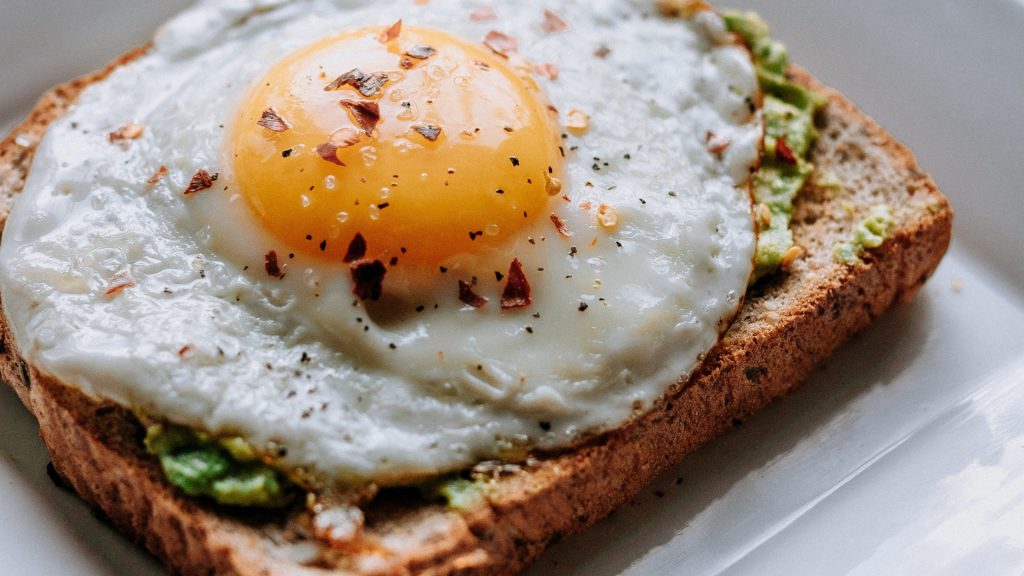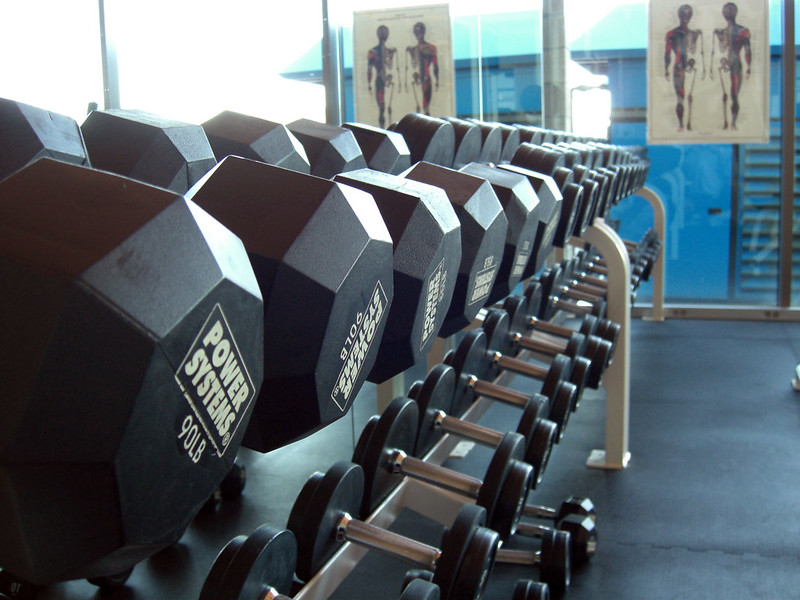Nutrition Basics for Muscle Gain

By Rae Brandenburg, RDN
Published: July 10, 2023

Did you know that adults may lose up to 8% of muscle mass per decade if it isn’t preserved with resistance training and adequate nutrition?1 Muscle mass is incredibly important for health and longevity. More muscle mass is associated with a lower risk of all-cause mortality.2
When it comes to muscle gain, it’s not just about hitting the gym – nutrition plays an essential role in the process. In this article, we’ll delve deeper into the three fundamental aspects of muscle gain: protein intake, eating adequate calories, and strength training.
Protein Intake: Understanding the Building Blocks of Muscle
Protein constitutes the building blocks of muscle tissue, and a higher protein intake is critical for muscle gain. Keep in mind that our recommendations are above and beyond the RDI, or recommended daily intake of 0.8g/kg body weight (0.36g/lb).3 For muscle mass gain, a daily intake of 0.7-0.9 grams of protein per pound of body weight seems to be ideal.3-6
If you realized your protein intake is well below what is recommended for muscle gain, don’t worry. One review showed that small increases in protein intake can also promote muscle gain.5 So you can slowly work your way up to the recommended amount above – no need to increase your protein intake overnight!
Most of us struggle to eat enough protein from food alone. Protein powders can help increase your overall protein intake without adding too many calories. Supplementing with whey protein powder has been shown to be most effective in building muscle mass, due to its high content of leucine.4,6 However, if you eat a plant-based diet, there are other plant-based protein powders to choose from. If you don’t love the flavor of protein powder, flavorless powders such as collagen are a great option to add to your coffee or tea in the morning.
Eating Enough Food: Fuel Your Gains
Besides protein, eating adequate calories is crucial for muscle gain. Consuming more calories than you burn creates a positive energy balance, providing the necessary fuel for weight training and muscle recovery.7 Calculate your daily caloric needs using the Mifflin St. Jeor equation, then add a moderate caloric surplus of 250-500 calories to ensure a steady rate of muscle gain.
Make sure to consume complex carbohydrates, such as whole grains, fruits, and vegetables, as they contribute to energy levels during your strength-training workouts. Don’t neglect healthy fats, such as avocados, nuts, and olive oil, which play a vital role in hormone production and inflammation control.8-10

Strength Training: Lifting for Muscle Growth
Incorporating progressive strength training into your exercise routine is paramount for muscle gain. Aim to train each major muscle group two to three times per week with a mix of moderate and heavy loads for optimal muscle development.11,12
Make sure to progressively increase the weight or resistance during your workouts – your muscles must experience a challenge to grow! Moreover, don’t forget the importance of recovery. Adequate sleep and rest days are critical for muscle tissue repair and growth.13
Ready to Take Your Nutrition Goals to the Next Level?
Keep in mind that everyone’s body and abilities are different, and these evidence-based recommendations are guidelines, not a strict plan. We always recommend working with a registered dietitian and personal trainer to help create a nutrition and exercise plan for your unique needs.
If you are ready to take the next step toward optimal health, check out Kyla’s longevity program. Our expert team, including a registered dietitian, provides comprehensive support on your journey to living a long, healthy life. Discover your personalized nutrition and wellness plan tailor-made for you today!
References
- Westcott WL. Resistance training is medicine: effects of strength training on health: Effects of strength training on health. Curr Sports Med Rep. 2012;11(4):209-216. doi:10.1249/JSR.0b013e31825dabb8
- Li R, Xia J, Zhang XI, et al. Associations of muscle mass and strength with all-cause mortality among US older adults. Med Sci Sports Exerc. 2018;50(3):458-467. doi:10.1249/MSS.0000000000001448
- Wu G. Dietary protein intake and human health. Food Funct. 2016;7(3):1251-1265. doi:10.1039/c5fo01530h
- Stark M, Lukaszuk J, Prawitz A, Salacinski A. Protein timing and its effects on muscular hypertrophy and strength in individuals engaged in weight-training. J Int Soc Sports Nutr. 2012;9(1):54. doi:10.1186/1550-2783-9-54
- Tagawa R, Watanabe D, Ito K, et al. Dose-response relationship between protein intake and muscle mass increase: a systematic review and meta-analysis of randomized controlled trials. Nutr Rev. 2020;79(1):66-75. doi:10.1093/nutrit/nuaa104
- Morton RW, Murphy KT, McKellar SR, et al. A systematic review, meta-analysis and meta-regression of the effect of protein supplementation on resistance training-induced gains in muscle mass and strength in healthy adults. Br J Sports Med. 2018;52(6):376-384. doi:10.1136/bjsports-2017-097608
- Slater GJ, Dieter BP, Marsh DJ, Helms ER, Shaw G, Iraki J. Is an energy surplus required to maximize skeletal muscle hypertrophy associated with resistance training. Front Nutr. 2019;6:131. doi:10.3389/fnut.2019.00131
- Simopoulos AP. Omega-3 fatty acids in inflammation and autoimmune diseases. J Am Coll Nutr. 2002;21(6):495-505. doi:10.1080/07315724.2002.10719248
- Mumford SL, Chavarro JE, Zhang C, et al. Dietary fat intake and reproductive hormone concentrations and ovulation in regularly menstruating women. Am J Clin Nutr. 2016;103(3):868-877. doi:10.3945/ajcn.115.119321
- Bhathena SJ. Relationship between fatty acids and the endocrine and neuroendocrine system. Nutr Neurosci. 2006;9(1-2):1-10. doi:10.1080/10284150600627128
- Schoenfeld BJ, Grgic J, Van Every DW, Plotkin DL. Loading recommendations for muscle strength, hypertrophy, and local endurance: A re-examination of the repetition continuum. Sports. 2021;9(2):32. doi:10.3390/sports9020032
- Evangelista AL, Braz TV, La Scala Teixeira CV, et al. Split or full-body workout routine: which is best to increase muscle strength and hypertrophy? Einstein (Sao Paulo). 2021;19:eAO5781. doi:10.31744/einstein_journal/2021AO5781
- Healthy Buffs: Making gains with your rest days. CU Boulder Today. Published November 13, 2018. Accessed June 12, 2023. https://www.colorado.edu/today/2018/11/13/healthy-buffs-making-gains-your-rest-days